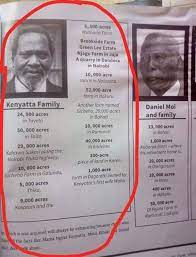LATEST HOT NEWS IN THE ROOM
Inside The Bukusu Circumcision Rite Of Passage
- Get link
- X
- Other Apps
In the heart of Western Kenya, amidst the lush green landscapes and the rhythmic hum of daily life, lies a tradition that has stood the test of time: the Bukusu circumcision ceremony.
For the Bukusu people, a sub-tribe of the larger Luhya community, circumcision is a rite of passage that marks the transition from boyhood to manhood.
This ceremony, conducted biennially during even years, typically in August, is a momentous event, celebrated with grandeur and deep reverence. It is more than a physical act; it is a spiritual and communal journey that binds the past, present, and future of the Bukusu people.
Cultural Significance
The ceremony is steeped in symbolism and tradition. Before the circumcision, the initiates, known as "basinde" undergo a period of seclusion and instruction.
They are taught the values and responsibilities of manhood, including bravery, resilience, and respect for elders. This period, often referred to as "the season of songs" is marked by vibrant singing, dancing, and storytelling, where the community's history and values are passed down through generations.
On the day of the circumcision, the initiate is adorned with symbolic regalia, including smearing of mud all over the body and a grass on the head. The ceremony begins at dawn, with the community gathering to witness and support the initiate.
The actual circumcision is performed by a skilled circumciser, known "omukhebi"; who uses a traditional knife. This act is conducted with precision and care, symbolizing the initiate's courage and readiness to embrace the responsibilities of adulthood.
Community and Identity
Bukusu circumcision is a communal event that strengthens social bonds and fosters a sense of identity and belonging. It is an opportunity for families and clans to come together, celebrate their heritage, and reaffirm their commitment to the values that define them.
The ceremony is also a testament to the resilience and continuity of Bukusu culture in the face of modernity and change.
The 'threat' of Modernization
Increasing urbanization, the influence of Western education and religions, and changing social
dynamics have led some to question the relevance of traditional practices.
However, many Bukusu leaders and elders emphasize the importance of preserving this cultural heritage.
They argue that the ceremony is not just a ritual but a vital link to the past, a source of identity, and a means of instilling important values in the younger generation.
They advocate for a balanced approach, where modern healthcare practices can be integrated to ensure the safety and well-being of the initiates, without sacrificing the cultural essence of the ceremony.
Preserving a Heritage
To ensure the survival of this tradition, there are ongoing efforts to document and promote Bukusu
circumcision practices.
Cultural festivals, educational programs, and community initiatives aim to raise awareness and appreciation for this rich heritage.
These efforts underscore the belief that cultural practices like Bukusu circumcision are not relics of the past but living traditions that can adapt and thrive in the modern world.
The Bukusu circumcision ceremony is a poignant reminder of the depth and richness of cultural
traditions.
It is a celebration of identity, community, and the passage of time.
As the world continues to evolve, it is crucial to remember and honor such traditions, ensuring that they are not lost but preserved and cherished for future generations.
The Bukusu circumcision ceremony, with its vibrant rituals and profound meanings stands as a testament to the enduring spirit of a people and the timeless value of cultural heritage.
- Get link
- X
- Other Apps
TOTAL PAGEVIEWS
YOU CAN ALSO SEE MORE IN OUR POSTS
Generational shifts
Uhuru secret team to fix succession by 2022
Is the mission Impossible Implementing the Ndung’u Report in kenya?
Uhuru clueless about PS reshuffle list?
How Idi Amin took Uganda to the brink of war in 1976 after attempts to annex parts of Kenya Territory
Komodo Dragon
Victor Wanyama Foundation scholarship beneficiaries undergo mentorship
Time has come that I must speak the truth
Rachael Ruto commercializes her hobby so as to help women
SOCIAL AND EQUALITY TO ALL

My main agenda is adopting a Gramscian theoretical framework, the five parts of this volume focus on the various ways in which the political is discursively and materially realized in its dialogic co-constructions within the media, the economy, culture and identity, affect, and education. We focus at examining the power instantiations of sociolinguistic and semiotic practices in society from a variety of critical perspectives, this blog focus at how applied political linguists globally is responding to, and challenge, current discourses of issues such as militarism, nationalism, Islamophobia, sexism, racism and the free market, and suggests future directions. No peace, no unity, no coexistence hence all becomes vanity...! It's why the world is oval.










Comments